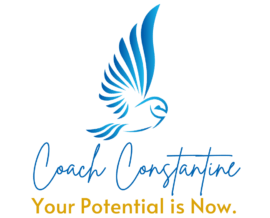How to Find a Life Coach: The Ultimate Guide
Table of Contents
Introduction
Are you feeling stuck in life or unable to achieve your goals? A life coach might be the perfect solution to help you navigate through these challenges. In this comprehensive guide, we will explore the steps to finding the right life coach for you. We’ll discuss various aspects including understanding what a life coach does, determining your needs, conducting research, interviewing potential coaches, and making a final decision.
What is a Life Coach?
A life coach is a professional who assists individuals in achieving their personal and professional goals. They do this by helping clients identify their strengths and weaknesses, develop action plans, and provide guidance throughout the process. Life coaches come from various backgrounds and specialize in different areas such as relationships, career, health and wellness, and personal development, even finding your potential and purpose in life.
Why You Might Need a Life Coach
Life coaching can be beneficial for individuals facing various challenges or seeking personal growth. Here are some common reasons why people might need a life coach, along with examples:
- Feeling stuck in life: If you’re struggling with a sense of stagnation or lack direction, a life coach can help you gain clarity and identify the steps needed to move forward. Example: Sarah feels unfulfilled in her career, but she’s unsure about her next steps. A life coach can help her explore her passions, strengths, and values to determine a more satisfying career path.
- Struggling with work-life balance: Maintaining a healthy balance between professional and personal responsibilities can be challenging. A life coach can provide guidance on time management, setting boundaries, and prioritizing self-care. Example: David is constantly overwhelmed by his demanding job and struggles to find time for his family and hobbies. A life coach can help him establish a more balanced schedule and develop strategies for managing stress.
- Pursuing a new career path: Changing careers can be a daunting process. A life coach can support you in identifying your transferrable skills, building your network, and navigating the job market. Example: Maria wants to transition from a corporate job to a non-profit role. Her life coach can help her create a targeted resume, prepare for interviews, and connect with professionals in her desired field.
- Improving relationships: Building and maintaining healthy relationships is a crucial aspect of overall well-being. A life coach can offer insights on effective communication, conflict resolution, and emotional intelligence. Example: Alex has difficulty forming close connections with others and often experiences conflict in his relationships. A life coach can help him improve his communication skills and foster more meaningful connections.
- Gaining clarity on personal goals: It’s not uncommon for people to feel unsure about their long-term objectives. A life coach can guide you in setting meaningful, achievable goals that align with your values and passions. Example: Emma dreams of starting her own business but is overwhelmed by the process. A life coach can help her break down her goal into manageable steps and develop a timeline for success.

Identifying Your Needs and Goals
Before wondering how to find a life coach, it’s crucial to identify your specific needs and goals. This will help you find a coach who specializes in the area most relevant to your situation. To clarify your needs and goals, consider these steps:
- Self-reflection: Spend time reflecting on your current challenges, aspirations, and areas of growth. Journaling or talking with a trusted friend can be helpful in gaining insight into your thoughts and emotions. Example: Jason feels unhappy in his current job, but he’s unsure if he should pursue a promotion, change companies, or switch industries altogether. Reflecting on his feelings and discussing them with a friend might help him pinpoint his primary concerns and desires.
- Assess your values and priorities: Understanding what is most important to you can guide your decision-making and goal-setting process. Consider ranking your values and priorities to determine which areas of your life need the most attention. Example: Lisa values financial security, personal development, and family time. By assessing her priorities, she may realize that her career growth is essential, but not at the expense of her family life.
- Identify your goals: Based on your self-reflection and values assessment, create a list of short-term and long-term goals. Ensure your goals are SMART (Specific, Measurable, Achievable, Relevant, and Time-bound). Example: Instead of setting a vague goal like “become healthier,” opt for a more specific and measurable goal such as “exercise for 30 minutes, four times a week for the next three months.”
Once you have a clear understanding of your needs and goals, you’ll be better equipped to find a life coach who can effectively support and guide you on your journey. Keep in mind that your goals may evolve over time, so it’s essential to maintain open communication with your life coach and regularly reassess your objectives.
Finding the Right Life Coach for Your Needs and Goals
With a clear understanding of your needs and goals, you can begin searching for a life coach who specializes in the areas most relevant to your situation. Here are some tips for finding the right life coach:
- Look for specialization: Choose a life coach who has experience and expertise in the specific area you’re seeking help with, such as career development, relationship coaching, or personal growth. Example: If your primary goal is to improve your leadership skills, you’ll want to find a life coach who specializes in leadership development and has a proven track record of helping clients excel in this area. Or if you’re a young adult, a life coach for young adults, might be more suitable for you. Or if you’re over 40, a life coach for midlife might be a better bet.
- Consider compatibility: It’s important to find a life coach whose personality, coaching style, and values resonate with you. This will ensure that you feel comfortable and supported throughout the coaching process.Example: You might prefer a life coach who takes a more nurturing and empathetic approach rather than someone with a direct and challenging style. Trust your instincts when evaluating potential coaches and choose someone you feel a strong connection with.
- Check credentials and testimonials: Look for a life coach with professional certifications and accreditations from reputable organizations, as well as positive testimonials from former clients. This will provide assurance that the coach is knowledgeable, experienced, and adheres to ethical standards.Example: Before selecting a life coach, read reviews from previous clients to gain insight into their experiences, results, and overall satisfaction with the coaching process.
By following these guidelines and carefully considering your individual needs and goals, you’ll be well on your way to finding the right life coach who can help you achieve personal growth, overcome challenges, and unlock your full potential. Remember that the coaching journey is a collaborative effort, so stay committed to the process and be open to growth and change.

How to Find a Life Coach: Conducting Research
To find the best life coach for your needs, it’s essential to conduct thorough research. Begin by gathering a list of potential life coaches through various sources:
- Online directories: Websites like Noomii, Life Coach Directory, and the International Coach Federation (ICF) provide extensive lists of coaches based on location and specialization.
- Social media: Platforms such as LinkedIn, Facebook, and Instagram can help you find life coaches who share their expertise and client testimonials.
- Referrals: Ask friends, family members, or colleagues if they can recommend a life coach they’ve had a positive experience with.
Once you have a list of potential candidates, carefully review their websites and social media profiles. Pay attention to their areas of expertise, years of experience, and client testimonials. You may also want to read any articles or blog posts they have written to get a better sense of their coaching style and philosophy.
Remember that finding the right life coach is a personal decision, so take your time with this process and trust your instincts when evaluating potential candidates. And while some coaches prefer in-person coaching, online life coaching has many benefits and offers some advantages.
Accreditation and Certifications
While life coaching is not a regulated industry, there are several reputable organizations that offer accreditation and certification programs for coaches. These credentials demonstrate a coach’s commitment to professional development and adherence to ethical standards.
Some well-respected organizations offering life coaching certifications include:
- International Coach Federation (ICF): As the largest global organization for professional coaches, ICF offers three levels of certification – Associate Certified Coach (ACC), Professional Certified Coach (PCC), and Master Certified Coach (MCC). To obtain these certifications, coaches must complete a specific number of coaching hours and pass a comprehensive exam.
- Association for Coaching (AC): This international organization provides accreditation for coaches who meet their rigorous standards. The AC offers three levels of membership – Associate, Professional, and Master Coach – based on experience and qualifications.
- Center for Credentialing & Education (CCE): The CCE offers the Board Certified Coach (BCC) credential, which requires coaches to complete an approved training program, pass a comprehensive exam, and adhere to a code of ethics.
When evaluating potential life coaches, it’s important to consider their certifications and accreditations. Coaches who have invested time and resources in professional development are more likely to provide high-quality coaching services.
Interviewing Potential Life Coaches
Once you have a list of potential life coaches, it’s time to interview them. Prepare a list of questions to ask during the interview, such as:
- What is your coaching background and experience?
- What areas do you specialize in?
- How do you approach the coaching process?
- What is your success rate with clients?
- Can you provide references or testimonials?
It’s essential to feel comfortable with the life coach you choose, so take your time during this process.
Comparing Fees and Packages
Life coaching fees can vary widely, so it’s essential to compare fees and packages. Some coaches offer sliding scale fees based on income, while others have flat rates or hourly fees. Be sure to ask about package deals, which may include multiple sessions at a discounted rate. Choose a coach whose fees fit within your budget but don’t sacrifice quality for a lower price.
Making Your Final Decision
After conducting interviews and comparing fees, it’s time to make your final decision. Consider the following factors:
- The life coach’s experience and qualifications
- Their coaching style and approach
- The rapport and connection you felt during the interview 4. The success stories and testimonials from former clients 5. The affordability of their fees and packages
Take your time to weigh these factors and choose a life coach who best aligns with your needs, goals, and personal preferences.

Beginning Your Journey with a Life Coach
Once you’ve selected your life coach, it’s time to embark on your coaching journey. Here’s what you can expect during the initial stages:
- Intake session: The first meeting with your life coach is often called an intake session. During this session, you’ll discuss your goals, challenges, and expectations. The coach will gather information about your background, values, and priorities to develop a customized coaching plan.Example: If your primary goal is to improve your work-life balance, your coach may ask about your current schedule, job responsibilities, and personal commitments. This information will help them understand the root causes of your imbalance and develop strategies to address it.
- Goal setting: Together with your life coach, you’ll establish clear, measurable, and achievable goals. These goals will serve as the foundation for your coaching sessions and help track your progress over time.Example: If you want to advance in your career, you might set a goal to secure a promotion within six months, expand your professional network, or acquire new skills relevant to your industry.
- Action planning: With your goals defined, your life coach will help you develop a step-by-step action plan to achieve them. This plan may include specific tasks, deadlines, and milestones to keep you focused and accountable.Example: If one of your goals is to improve your physical health, your action plan might include scheduling regular workouts, meal planning, and setting achievable weight loss targets.
- Regular coaching sessions: As you work towards your goals, you’ll have regular coaching sessions with your life coach. These sessions will provide an opportunity to review your progress, address any challenges or obstacles, and adjust your action plan as needed. The frequency of these sessions will depend on your individual needs and preferences, as well as your coach’s recommendations.
Example: If you’re working on improving your communication skills, your coach may provide exercises and techniques to practice between sessions, such as active listening or assertiveness training. During your sessions, you can discuss your experiences with these techniques and receive feedback from your coach.
- Support and accountability: Your life coach will serve as a support system and accountability partner throughout your journey. They will encourage you, celebrate your achievements, and help you stay committed to your goals even when faced with setbacks or challenges.Example: If you’re struggling to maintain a consistent exercise routine, your life coach may offer suggestions for overcoming obstacles, such as finding a workout buddy or identifying the underlying causes of your lack of motivation.
- Evaluation and reassessment: As you make progress towards your goals, it’s important to evaluate your growth and reassess your objectives. Your life coach will help you reflect on your achievements and determine whether your initial goals are still relevant or if they need to be adjusted.Example: If you’ve successfully transitioned into a new career, you and your coach might decide to shift your focus towards other areas of personal development, such as building stronger relationships or cultivating a more positive mindset.
Throughout your coaching journey, remember that personal growth takes time and effort. Be patient with yourself, stay open to feedback, and trust the guidance of your life coach. With dedication and perseverance, you’ll be well on your way to achieving your goals and living a more fulfilled life.
How to Find a Life Coach: Conclusion
Finding the right life coach is an essential step toward personal growth and achieving your goals. By following this comprehensive guide, you can identify your needs, conduct research, interview potential coaches, and make an informed decision. With the support of a skilled life coach, you’ll gain valuable insights, develop actionable plans, and ultimately unlock your full potential. Hopefully with the above guide, your “how to find a life coach” quest will be easier. For more information, don’t forget the FAQ section below.

Frequently Asked Questions (FAQs)
Q1: How long does a typical life coaching session last?
A1: A typical life coaching session lasts between 45 minutes to an hour. However, some coaches offer shorter or longer sessions depending on the client’s needs.
Q2: How often should I meet with my life coach?
A2: The frequency of meetings will depend on your goals and the coach’s recommendations. Some clients meet weekly, while others may meet bi-weekly or monthly.
Q3: Can I work with a life coach remotely?
A3: Yes, many life coaches offer remote sessions via phone or video conferencing. This allows clients to work with coaches from different locations and provides flexibility in scheduling.
Q4: How long does it take to see results from life coaching?
A4: The time it takes to see results varies depending on the client’s goals and commitment to the process. Some clients may experience significant progress within a few sessions, while others may require several months or more to achieve their desired outcomes.
Q5: Is life coaching the same as therapy?
A5: Life coaching and therapy are distinct services, although they may share some similarities. While both aim to help clients improve their lives, therapy focuses on addressing mental health issues and past traumas, whereas life coaching emphasizes goal-setting and future-oriented actions.
Featured image: Photo by Jamie Brown on Unsplash

